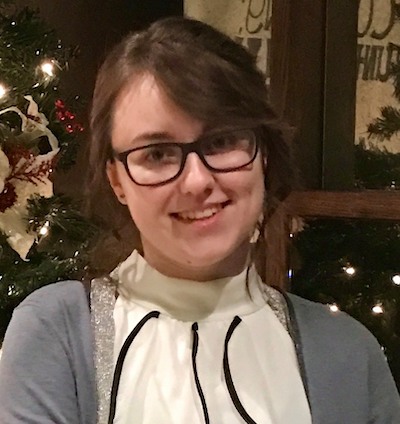OT students help neurologically injured prepare for stay-at-home order, COVID-19 safety

This semester, occupational therapy students in Assistant Clinical Professor Christine Johnson's motor control course were supposed to assess and design treatment plans for individuals with neurological injuries. Wayne State University's switch to online classes and the state's broader response to the COVID-19 pandemic changed those plans - but it did not stop students from making a difference.
"Because we can't meet in person with clients with neurological injury due to social distancing guidelines, we transitioned this experiential learning opportunity into finding resources that could be shared with these same individuals," Johnson said.
One student team - Sarah Miller and Marta Stryzkala - created a four-page guide called Preparing to Be Homebound filled with checklists and reliable resources covering everything from grocery suggestions to virus prevention advice.

Individuals with neurological injury can have difficulty with cognitive functions such as attention, memory and processing, and the document is designed to communicate critical information to these individuals in a way that considers their specific needs.
"It's taken many clients years to develop routines and learn to use compensatory strategies to do daily activities," Johnson said. "With the current stay-at-home conditions, many clients have to learn a new process, which has caused heightened anxiety and confusion."
The students' creative solution was immediately put to practical use. The colorful, easy-to-follow guide was distributed to every therapist at Galaxy Brain and Therapy Center, which provides occupational therapy to clients of all ages throughout metro Detroit and is where Johnson's students would have completed their experiential learning.
In addition to working with clients in their Ann Arbor clinic, Galaxy typically guides them through real-life situations at their homes and in the community, assisting with activities like banking, shopping and recreation. During COVID-19, the center has transitioned all treatment to teletherapy.
Said Johnson, "Many OTs are incorporating Preparing to Be Homebound into their teletherapy sessions this week as they help clients think through a 'normal day' and identify processes they will need to change or need help with."
Other students in Johnson's class are creating resources about medication management, home deliveries, child and pet care, meaningful home activities, fitness, online safety, self-reflective writing prompts, mindfulness techniques and more to keep individuals with neurological injury engaged and healthy during COVID-19.